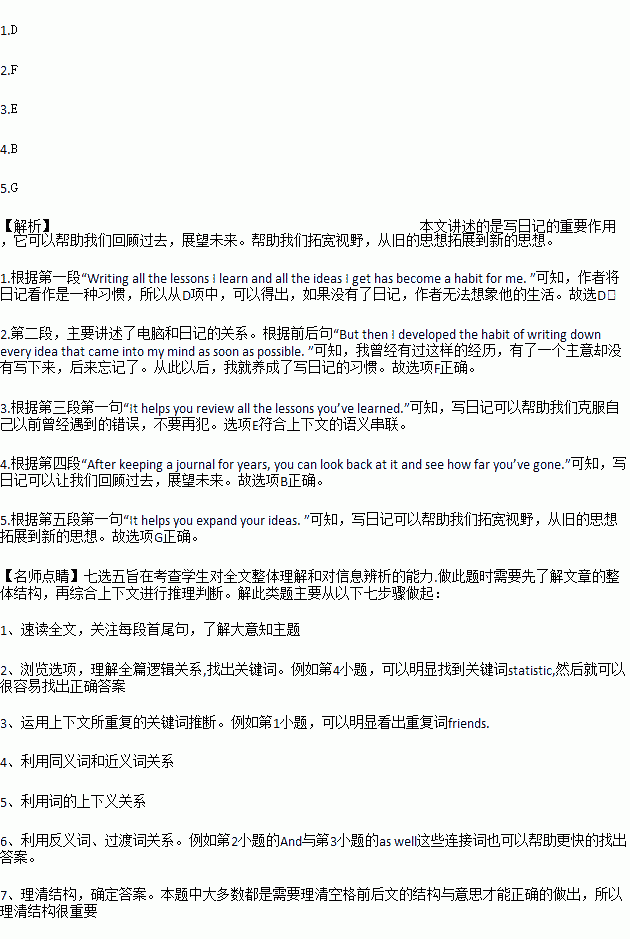题目内容
The benefits of keeping a journal (日志)
If you want to grow, one important thing you should do is keeping a journal. It may seem simple, but it can make a big difference in your life. I have been keeping journals for years. Writing all the lessons I learn and all the ideas I get has become a habit for me. 1. Here are some benefits you will get by keeping a journal.
◆ It prevents you from losing an idea. Have you ever gotten an idea only to lose it later because you didn’t write it down? 2. But then I developed the habit of writing down every idea that came into my mind as soon as possible. If I’m away from my computer, I usually write it down on a piece of paper that I bring wherever I go. I will then transfer the idea to the journal in my computer.
◆ It helps you review all the lessons you’ve learned. By reviewing your journal, you can quickly see the lessons you’ve learned and the ideas you’ve gotten. 3. You can use the ideas to propel (鞭策) yourself forward.
◆ 4. After keeping a journal for years, you can look back at it and see how far you’ve gone. Things that were big problems in the past might seem small today. The raw ideas you had in the past migh t have been realized today.
t have been realized today.
◆ It helps you expand your ideas. When you try to come up with a sentence to express an idea, you are thinking actively about it.5. In the end, you will expand your ideas.
A. It trains you to express your thoughts.
B. It allows you to see your progress over time.
C. Just use whatever tool you feel comfortable with.
D. And to be honest, I can’t imagine what my life would be like without it.
E. Then you can do whatever necessary to avoid repeating the same mistakes.
F. I often experienced that myself.
G. Thinking actively helps you connect your idea to another idea.

